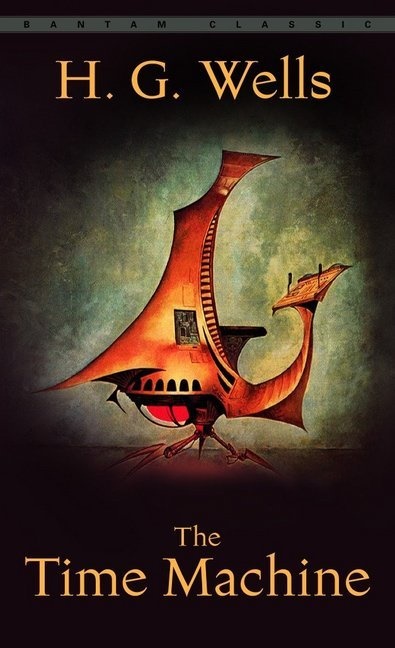Read more
When the Time Traveller courageously stepped out of his machine for the first time, he found himself in the year 802,700 and everything had changed. In this unfamiliar, utopian age creatures seemed to dwell together in perfect harmony. The Time Traveller thought he could study these marvelous beings unearth their secret and then return to his own time until he discovered that his invention, his only avenue of escape, had been stolen.
H. G. Wells s famous novel of one man s astonishing journey beyond the conventional limits of the imagination first appeared in 1895. It won him immediate recognition and has been regarded ever since as one of the great masterpieces in the literature of science fiction.
About the author
H(erbert) G(eorge) Wells, geb. am 21. September 1866 in Bromley/Kent, starb am 13. August 1946 in London. Nach einer Kaufmannslehre absolvierte er ein naturwissenschaftliches Studium mit Prädikatsexamen; nach nur wenigen Jahren als Dozent lebte er als freier Schriftsteller. Sein Gesamtwerk umfaßt etwa hundert Bände. Zu Weltruhm gelangte er mit seinen Romanen und Erzählungen, die ihn als Begründer der modernen Science Fiction, als genialen phantastischen Utopisten und als kritisch-humorvollen Gesellschaftssatiriker ausweisen.
Summary
When the Time Traveller courageously stepped out of his machine for the first time, he found himself in the year 802,700—and everything had changed. In this unfamiliar, utopian age creatures seemed to dwell together in perfect harmony. The Time Traveller thought he could study these marvelous beings—unearth their secret and then return to his own time—until he discovered that his invention, his only avenue of escape, had been stolen.
H. G. Wells’s famous novel of one man’s astonishing journey beyond the conventional limits of the imagination first appeared in 1895. It won him immediate recognition and has been regarded ever since as one of the great masterpieces in the literature of science fiction.
Additional text
“[Wells] contrives to give over humanity into the clutches of the Impossible and yet manages to keep it down (or up) to its humanity, to its flesh, blood, sorrow, folly.” —Joseph Conrad
Report
[Wells] contrives to give over humanity into the clutches of the Impossible and yet manages to keep it down (or up) to its humanity, to its flesh, blood, sorrow, folly. Joseph Conrad

